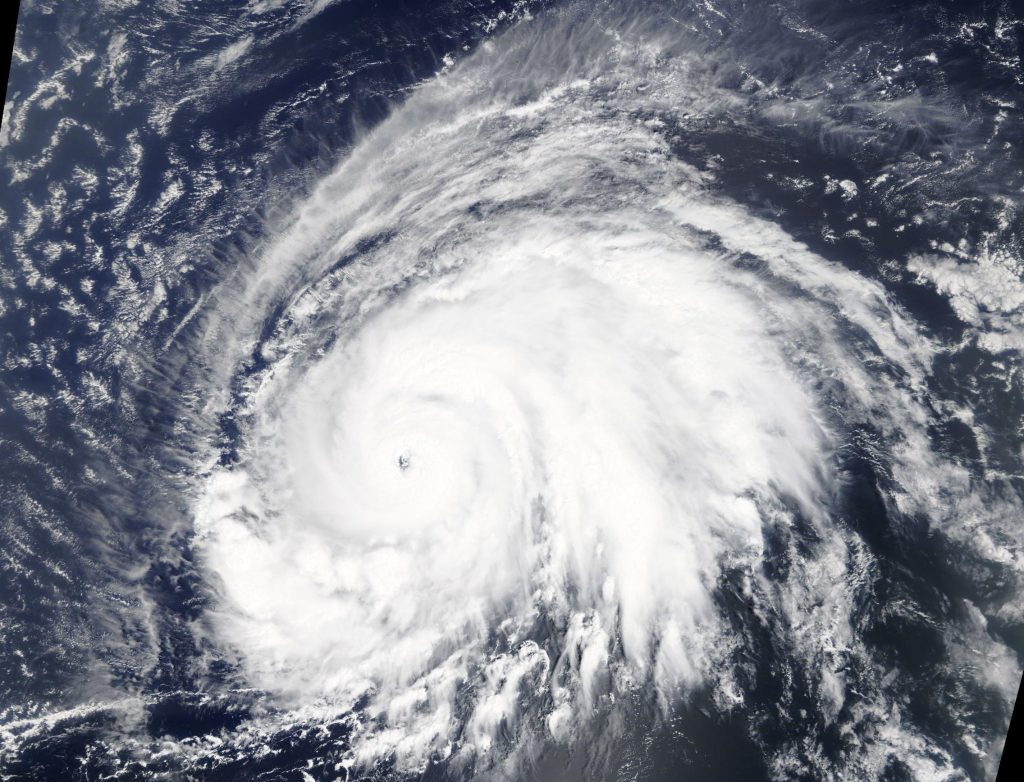Sep. 27, 2019 – NASA Data Stares into the Eye of Powerful Hurricane Lorenzo
Satellite data has confirmed that Lorenzo is a major hurricane in the eastern North Atlantic Ocean with an impressive structure. NASA’s Terra Satellite provided a visible image of Lorenzo that revealed a clear eye and a solid structure of thunderstorms around the eye.

On Sept. 26, the Moderate Imaging Spectroradiometer or MODIS instrument that flies aboard NASA’s Terra satellite provided a visible image of Lorenzo as a major hurricane. The image and other satellite images showed a well-defined eye. The MODIS image revealed powerful thunderstorms around the eyewall, extending high into the troposphere. The circular shape of the storm indicated an organized and powerful storm.
At 5 a.m. EDT (0900 UTC), on Sept. 27 the center of Hurricane Lorenzo was located near latitude 18.6 degrees north and longitude 42.1 degrees west. Lorenzo is moving toward the north-northwest near 14 mph (22 km/h), and this general motion is forecast to continue today. A turn toward the north is expected on Saturday, followed by a turn toward the northeast on Sunday. Maximum sustained winds remain near 145 mph (230 kph) with higher gusts. Lorenzo is a category 4 hurricane on the Saffir-Simpson Hurricane Wind Scale. Some fluctuations in strength are possible today. Slow weakening is forecast to begin by the weekend.
Lorenzo is a large hurricane. Hurricane-force winds extend outward up to 45 miles (75 km) from the center and tropical-storm-force winds extend outward up to 265 miles (425 km).
Lorenzo, as a Category 4 hurricane has a long reach with ocean swells. Swells generated by Lorenzo are affecting portions of the northeastern coast of South America and will affect portions of the Windward Islands beginning today.
The estimated minimum central pressure is 937 mb (27.67 inches).
Hurricanes are the most powerful weather event on Earth. NASA’s expertise in space and scientific exploration contributes to essential services provided to the American people by other federal agencies, such as hurricane weather forecasting.
For updated forecasts, visit: www.nhc.noaa.gov
